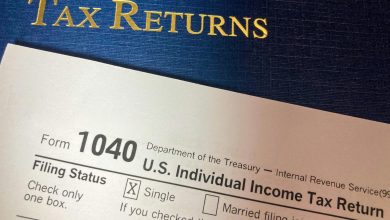How to Set Yourself Up for Financial Emergencies

How to Set Yourself Up for Financial Emergencies
Life is unpredictable, and financial emergencies can strike when you least expect them. Whether it’s an unexpected medical bill, job loss, or urgent home repair, being financially prepared can make all the difference. Here’s a practical guide on how to set yourself up for financial emergencies.
1. Build an Emergency Fund
An emergency fund is the cornerstone of financial preparedness. It provides a financial cushion to cover unexpected expenses without derailing your budget.
- Set a Goal: Aim to save at least 3-6 months’ worth of living expenses. Consider your job stability and household size when determining the exact amount.
- Start Small: If saving a large amount feels overwhelming, begin with small, consistent contributions. Even $20 a week can add up over time.
- Keep It Accessible: Store your emergency fund in a high-yield savings account that is easily accessible but separate from your regular checking account to avoid unnecessary spending.
2. Create a Budget and Stick to It
A well-structured budget helps you manage your money effectively, making it easier to save for emergencies.
- Track Your Expenses: Identify where your money is going each month. Use budgeting apps or spreadsheets to monitor your spending.
- Prioritize Savings: Treat your emergency fund contributions as a non-negotiable expense, just like rent or utilities.
- Adjust as Needed: Life circumstances change, so review and adjust your budget regularly to stay on track.
3. Reduce Debt
High-interest debt can drain your finances, leaving little room for savings.
- Focus on High-Interest Debt: Prioritize paying off credit cards and other high-interest loans first.
- Consolidate if Possible: Consider consolidating debts to lower interest rates and simplify payments.
- Avoid New Debt: Be cautious about taking on new debt unless absolutely necessary.
4. Diversify Your Income Sources
Relying solely on one source of income can be risky in times of economic uncertainty.
- Side Hustles: Explore freelance work, part-time jobs, or passive income opportunities.
- Skill Development: Invest in skills that can open doors to new income streams or career advancements.
5. Have Insurance Coverage
Insurance acts as a financial safety net, helping to cover significant expenses in emergencies.
- Health Insurance: Ensure you have adequate health coverage to avoid overwhelming medical bills.
- Home and Auto Insurance: Protect your valuable assets against unexpected damages.
- Life and Disability Insurance: Provide financial security for your family in case of unforeseen events.
6. Establish a Financial Emergency Plan
Preparation goes beyond just saving money.
- Identify Potential Risks: Consider the most likely financial emergencies you could face.
- Create a Response Plan: Outline steps you would take in different scenarios, such as job loss or medical emergencies.
- Keep Important Documents Safe: Store copies of essential documents like insurance policies, identification, and financial records in a secure, easily accessible place.
7. Build a Support Network
Sometimes, emotional and practical support is as important as financial resources.
- Trusted Contacts: Identify friends, family, or advisors who can offer guidance during tough times.
- Community Resources: Be aware of local organizations or government programs that provide assistance during emergencies.
Conclusion
Setting yourself up for financial emergencies is about proactive planning and consistent effort. By building an emergency fund, managing debt, securing insurance, and having a clear plan, you can face unexpected financial challenges with confidence. Remember, the best time to prepare for an emergency is before it happens.



